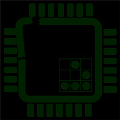Threatpost excerpt:
Flaws in Das U-Boot affect third-party hardware that uses the universal bootloader as an underlying component. Multiple vulnerabilities have been found in Das U-Boot, a universal bootloader commonly used in embedded devices like Amazon Kindles, ARM Chromebooks and networking hardware. The bugs could allow attackers to gain full control of an impacted device’s CPU and modify anything they choose. Researchers at ForAllSecure found the flaws in U-Boot’s file system drivers. They include a recursive stack overflow in the DOS partition parser, a pair of buffer-overflows in ext4 and a double-free memory corruption flaw in ext4. They open the door to denial-of-service attacks, device takeover and code-execution.[…] ForAllSecure also found five low-severity divide-by-zero bugs, triggered by invalid extended file systems. U-Boot patched the bugs as of its v. 2019.10 release – but devices are likely still vulnerable given that the update process is controlled by the vendor of the device rather than U-Boot itself.[…]
https://lists.denx.de/pipermail/u-boot/2019-July/375516.html
https://cve.mitre.org/cgi-bin/cvename.cgi?name=CVE-2019-13106
https://nvd.nist.gov/vuln/detail/CVE-2019-13106#vulnCurrentDescriptionTitle
